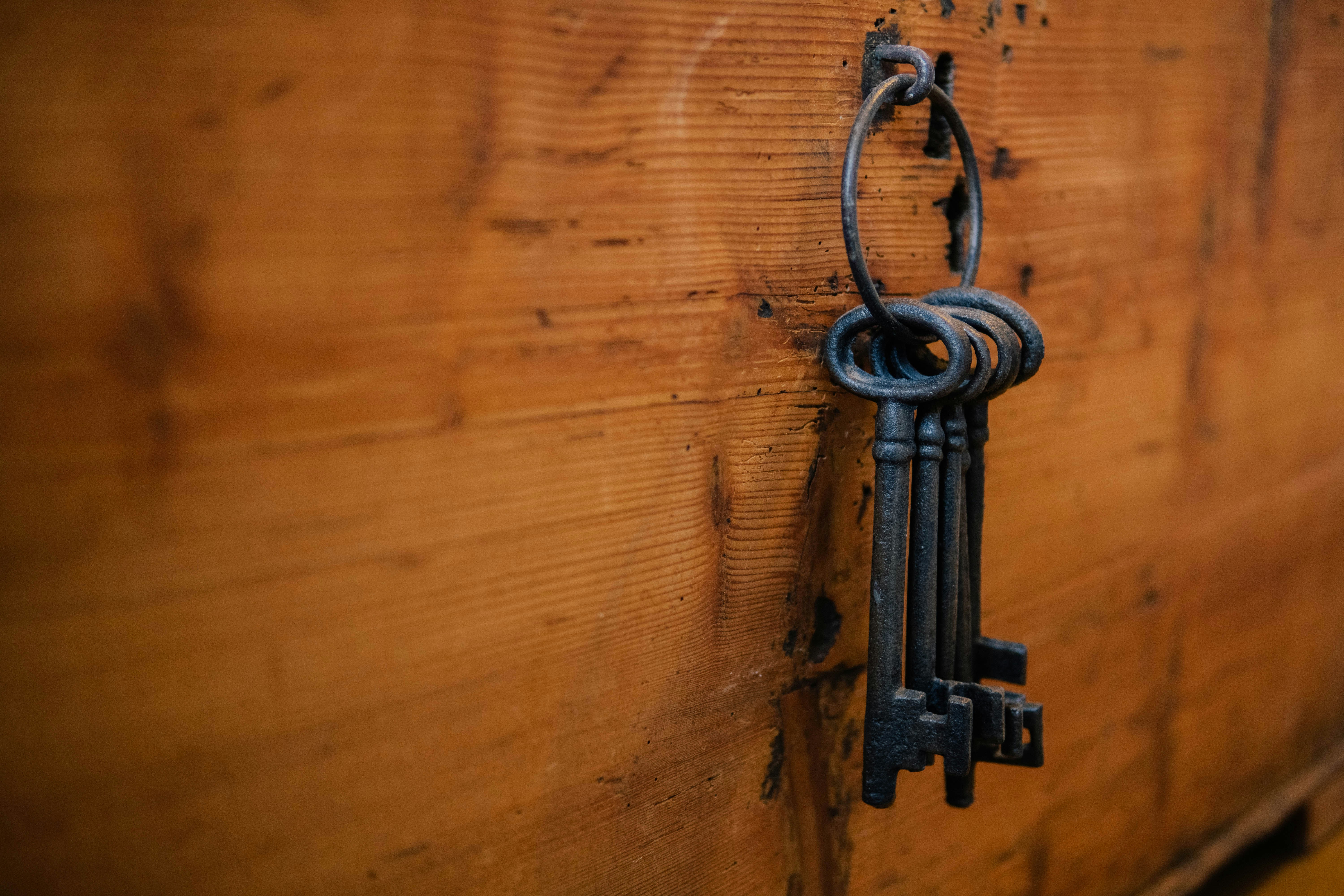So... the Sabbath. We know the fourth commandment: Remember the sabbath day, to keep it holy (Exodus 20:8, KJV). Of course, if God writes something in His Ten Commandments, we assume that it’s a given—He rested and knows that it’s good for us to rest. Our Lord, our Father, wants us to spend some time with Him, and that’s fair enough, that makes sense. What good father doesn’t want to spend time with his children? But it’s more than just that. A good father also wants his children to listen to him in instruction—but our once clear direction seems to have been lost over the ages. What does it mean the ‘Sabbath?’ Has it been revived? Let’s find out.
As we saw in The Hopeful, the Millerites had just experienced a shocking disappointment. People had given not just hope for Jesus’ return on that date, but their livelihoods, their assets, and their reputations. When He didn’t come back on their assumed date, they were understandably devastated. We also saw a small group, just beginning to find hope again after their deep discouragement. As they searched the Bible for answers they began to understand that Jesus was still coming but that the prophecy they had used to predict His coming was predicting something else entirely.

Discovering Lost Treasure
If you have been following this blog series, you will have already been on an incredible journey alongside the early Millerite followers. If you are jumping in here at part 3, please head back to part 1 where you can discover who the Millerites were, their commitment, and their sorrow. In part 2, we looked at how they developed in their understanding of the Bible and began to regroup after the Great Disappointment.


This was just the beginning.

In the months leading up to the Great Disappointment of 1844, a woman named Rachel Oaks had shared a fascinating discovery with a Millerite Methodist minister named Frederick Wheeler. She had found something long forgotten in the pages of the Bible—a blessing that had been lost. When Wheeler researched this topic, he was quickly convinced that something precious to humanity had been found. He began sharing the discovery with others who in turn published pamphlets on the subject.
So wait—what was this discovery? And why does it matter now?The discovery goes back to the opening pages of the Bible where God is described as creating the world and its inhabitants in six days. On the seventh day, God rested. But then He did something intriguing: He blessed the seventh day and set it apart. This day was different from all others. It was intended as a day of rest, a space in time where human beings could pause from their work and worries and devote themselves to worship. The day, known as the Sabbath, was observed by Jews throughout history from Friday sunset to Saturday sunset. While we might be tempted to dismiss this day as a quaint cultural custom of ancient times, modern research suggests there might be more to Sabbath keeping than meets the eye. A study conducted in 2001 looked at mortality rates of Sabbath-keeping Jews during different holy days compared with regular days. Jews have quite a number of holy days on their calendar that require rest and worship. The study found that mortality rates were lower for all causes of death on the Sabbath¹. Interestingly, mortality rates were not lower on other holy days. It seems the Sabbath day comes with a special blessing. And lower mortality rates are just the beginning! Let’s get back to the story.News of this discovery spread amongst Millerite followers. In 1845, just months after the Great Disappointment, it reached the ears of a retired sea captain, Joseph Bates. Bates was intrigued and spent a great deal of time researching the Sabbath, before becoming convinced. He made connections between the Sabbath, which appears as one of the Ten Commandments of God, and the heavenly sanctuary (read The Hopeful: Lesson 2 for more on this). The sanctuary on earth was where the Ten Commandments, written on two pieces of stone, were kept (Deuteronomy 10:2-5). If the earthly sanctuary was a replica of the heavenly sanctuary, as seen in Hebrews 8:5, it seemed reasonable to assume the Ten Commandments were important in the heavenly sanctuary too. The Sabbath is the one commandment that is generally forgotten—ironically, it is also the only commandment that begins with the word “Remember…”.
Bates became convinced that the Sabbath was especially important to God’s people in light of the events in the heaven sanctuary that took place in 1844. God was calling His people to obey the 10 Commandments and to remember the Sabbath and receive its blessing. But this doesn’t mean that keeping the Commandments is the way to heaven. Wait a minute—if keeping God’s commandments isn’t the way to heaven, what is? Let’s take a moment to unpack this.The Bible teaches that Jesus died on the cross to pay the penalty for our sins. (If this is a new concept to you, you can learn more about it here at Can You Live Forever?). God has given us instructions for living based on two principles—loving God and loving others (Matthew 22:37-39). Sin is the breaking of that law of love (1 John 3:4). If we are honest with ourselves, every person has broken the law of love at some point—either we have lied, or stolen, or lost our temper. Maybe we have gossiped or spoken rudely to someone or put our needs above the needs of another. Every person alive has sinned at some point. But according to the Bible, the penalty of sin is death. That’s a big deal. It means that everyone deserves to die. But God didn’t want to spend eternity without us. So He sent His only Son, Jesus, to die in our place (John 3:16). Only Jesus could take the penalty for our sins because He alone was sinless. When He died, He took the death we deserved so that we could have the eternal life that He deserved. But it wasn’t over. Jesus then rose from the dead three days later, proving that He had won the victory over death and had made a way for all of us to rise from the dead when He returns to earth (more about that later!)
So, if keeping the Commandments isn’t what saves us, why bother keeping them at all? Well, Jesus said that if we love Him, we will keep His commandments (John 14:15). Keeping the Commandments is a response of love to all that God has done for us—the evidence that we love Him back.You might wonder, if Sabbath began at the Creation of the world and is one of the Ten Commandments, how is it possible that it was ever forgotten? It’s an interesting answer. In fact, many Christians believe that Jesus did away with the Commandments and that they are no longer relevant. Of course, it is harder to say that about other Commandments such as “Don’t kill” or “Don’t steal” but the Sabbath has often been ignored with this reasoning (Exodus 20). But did Jesus really do away with the Commandments? Let’s take a look at Jesus’s own words on this topic:“Do not presume that I came to abolish the Law or the Prophets; I did not come to abolish, but to fulfill. For truly I say to you, until heaven and earth pass away, not the smallest letter or stroke of a letter shall pass from the Law, until all is accomplished!”
Matthew 5:17, 18, NASB, emphasis supplied
That hardly sounds like Jesus put an end to the Commandments! In fact, if we read the Bible we discover that Jesus Himself kept the Sabbath and so did His followers. Jesus challenged the way the religious people of His time kept the Sabbath. Jesus encouraged the Sabbath as being a time to worship God as Creator and a time to show kindness and love to others (Mark 3:1-6). Sadly, the religious leaders had added all sorts of rules to the Sabbath that God never intended, but Jesus taught that “It is lawful to do good on the Sabbath” (Matthew 12:12, NIV).
It is fairly easy to see that Jesus never intended to put an end to the Sabbath. But there is another reason why it was forgotten. In the years following Christ’s resurrection, Christians were severely persecuted both by the Jews (who had rejected Christ as the promised Savior) as well as by the Romans. As a result of Jewish revolts against the Roman Empire in places like Jerusalem and Cyrene (North Africa), the Romans came to see the Jews as enemies. This led a portion of Christians to distance themselves from their Jewish roots, and the Sabbath was one of the most obvious signs of Jewish-ness.In the fourth Century, Emperor Constantine, in an effort to unite the sun-worshiping pagans and Christians in his Empire, legalized the Christian faith and ordained Sunday as the official day of rest. Notice that Sunday was established as a day of rest not based on what God had commanded to his followers, but on what was convenient in uniting the Empire and preserving its pagan traditions.With time, Emperor Constantine’s strategy led Christians astray from following God’s commandments and the example of Jesus and the early apostles. As Christianity became a respectable religion, Christians began to compromise and adopt more pagan practices. For a while, some kept both the Sabbath and Sunday holy as days of rest. Soon, however, pressure came for people to work on Saturdays and keep only Sundays holy.Around 363-364 AD, referring to Sunday as ‘the Lord’s Day’, church bishops wrote this:Sunday has been observed for hundreds of years, and people have not questioned it. When people read about the Sabbath in the Bible, they simply assumed it was Sunday. But that’s not what the Bible says.
And the women who had come with Him from Galilee followed after, and they observed the tomb and how His body was laid. Then they returned and prepared spices and fragrant oils. And they rested on the Sabbath according to the commandment.
Luke 23:55-56, NKJV
Now on the first day of the week, very early in the morning, they, and certain other women with them, came to the tomb bringing the spices which they had prepared. But they found the stone rolled away from the tomb.
Luke 24:1,2 NKJV
These last verses describe the day that Jesus rose from the dead. As we see here, the Sabbath was the day before Jesus rose. Jesus rose on Sunday, which these verses call “the first day of the week”. Thus, it is clear that the seventh day of the Sabbath is Saturday.
Bates and other Millerite believers were thrilled to return to the original day of worship ordained by God. They experienced the blessing of the Sabbath for themselves and passionately shared this lost treasure with all who would listen. This discovery would become a pivotal part of this movement and a defining feature of their group. Thus, the name Seventh-Day Adventists was born. This is not just a discovery that has to be limited to the past. Current Seventh-Day Adventists have taken up this true day of rest and dedicated it back to God. If you feel like this is something you’d like to be a part of, or simply know more about, feel free to chat to us at the WhatsApp link below. We’d be happy to talk to you!The amazing journey of these Millerite believers was only just beginning. In Part 4 of this blog we will continue to explore the history of these people who would go on to found the Seventh-day Adventist Church.
Don’t miss it!



